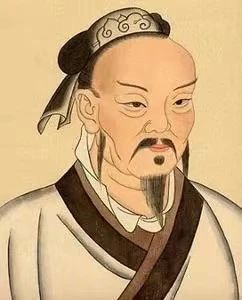
孟子见梁惠王,王立于沼[1]上,顾鸿雁麋鹿,曰:“贤者亦乐此乎?”
孟子对曰:“贤者而后乐此,不贤者虽有此,不乐也。《诗》云:‘经始灵台[2],经之营之,庶民攻[3]之,不日[4]成之。经始勿亟[5],庶民子来。王在灵囿[6],麀鹿[7]攸伏,麀鹿濯濯[8],白鸟鹤鹤[9]。王在灵沼,於牣[10]鱼跃。’文王以民力为台为沼。而民欢乐之,谓其台曰‘灵台’,谓其沼曰‘灵沼’,乐其有麋鹿鱼鳖。古之人与民偕乐,故能乐也。《汤誓》曰:‘时日害丧[11]?予及女[12]偕亡。’民欲与之偕亡,虽有台池鸟兽,岂能独乐哉?”
Mencius, another day, saw King Hui of Liang. The king went and stood with him by a pond, and, looking round at the large geese and deer, said, “Do wise and good princes also find pleasure in these things?”
Mencius replied, “Being wise and good, they have pleasure in these things. If they are not wise and good, though they have these things, they do not find pleasure. It is said in the Book of Poetry, ‘He measured out and commenced his marvellous tower; He measured it out and planned it. The people addressed themselves to it, and in less than a day completed it. When he measured and began it, he said to them—Be not so earnest. But the multitudes came as if they had been his children. The king was in his marvellous park; the does reposed about, the does so sleek and fat; and the white birds came glistening. The king was by his marvellous pond; how full was it of fishes leaping about!’ King Wen used the strength of the people to make his tower and his pond, and yet the people rejoiced to do the work, calling the tower ‘the marvellous tower’, calling the pond ‘the marvellous pond’, and rejoicing that he had his large deer, his fishes, and turtles. The ancients caused the people to have pleasure as well as themselves, and therefore they could enjoy it. In the Declaration of Tang it is said, ‘O sun, when will you expire? We will die together with you.’ The people wished for Jie’s death, though they should die with him. Although he had towers, ponds, birds, and animals, how could he have pleasure alone?”
【注释】[1]沼:池塘。[2]经始:开始规划营建。灵台:故址在今陕西西安。[3]攻:建造。[4]不日:没几天。[5]亟:同“急”。[6]灵囿:古代帝王畜养禽兽的园林。[7]麀鹿:母鹿。[8]濯濯:肥胖而光滑的样子。[9]鹤鹤:羽毛洁白的样子。[10]於:赞叹词。牣:满。[11]害:同“曷”,即何,意为何时。丧:毁灭。[12]予及女:我与你。女:同“汝”。
【译文】孟子谒见梁惠王,梁惠王站在池塘旁边,得意地顾盼着鸿雁、麋鹿等飞禽走兽,问孟子说:“贤人也以此为乐吗?”
孟子回答说:“正因为是贤人才能够以此为乐,不贤的人就算有这些东西,也不能够感到快乐。《诗经》说:‘开始规划造灵台,仔细营造巧安排,天下百姓都来干,几天建成速度快。建台本来不着急,百姓似子自动来。大王游览灵园中,母鹿伏在深草丛,母鹿肥大毛色润,白鸟洁净羽毛丰。大王游览到灵沼,满池鱼儿欢跳跃。’周文王动用了民力来修建高台深池。可是百姓都非常高兴,把那台叫作‘灵台’,把那池叫作‘灵沼’,以那里面有麋鹿鱼鳖等珍禽异兽而快乐。古代的君王与民同乐,所以能真正快乐。相反,《汤誓》说:‘你这太阳啊,什么时候毁灭呢?我宁肯与你一起毁灭!’老百姓恨不得与你同归于尽,即使你有高台深池、珍禽异兽,难道能独自享受快乐吗?”
【解读】本章谈论的主旨是怎样才能使自己感到真正的快乐。站在自己的园林中,看鸿雁翱翔、麋鹿腾跃,一片生机盎然,梁惠王情不自禁地问道:“贤人也以此为乐吗?”从梁惠王洋洋得意的口气中,完全可以感受到他心中的骄傲自得之情。孟子很坦然,通过周文王与夏桀的民情对比,告诉梁惠王真正的快乐来自与民同乐!作为一国之君,即便是你拥有飞禽走兽而自得其乐,也不是真正的快乐,关键要看你是否得到了百姓的爱戴,这就是贤者“同乐”与不贤者“独乐”的原因。有仁德的君主,应心怀天下苍生,将自己的快乐与百姓共享,如此百姓当然会心甘情愿地拥护他,正如周文王,虽然借用了民力来修建高台深池,可是老百姓都非常高兴。如果将自己的快乐建立在百姓的痛苦之上,如夏桀一般,自诩为太阳,百姓也会诅咒他灭亡,即便与之同归于尽也在所不惜。受人诅咒的人又怎会享受到真正的快乐呢?这实在值得后世为政之人深思。